Toxicity
How to submit an article:
- Registered users can submit any published journal article that has a unique DOI (Digital Object Identifier) name or link to Research Hub.
- For example, you can paste the full DOI link:
https://doi.org/10.1109/5.771073or just the DOI name:10.1109/5.771073into the field above and click submit. - The person who is first to submit a valid article to Research Hub will forever be credited for it, and every article submission earns you +6 Research Points.
Related Topics
Published research studies are articles that present the findings of original research that has undergone a peer-review process and has been made publicly available in scholarly journals, books or other media.
Evaluation of possible neuroprotective effects of virgin coconut oil on aluminum‐induced neurotoxicity in an in vitro Alzheimer's disease model
2023 Nov 21 Journal of Applied Toxicology Demirel G, Sanajou S, Yirün A, Çakir DA, Berkkan A, Baydar T, et al.
Experimental Study Alzheimer's DiseaseVirgin coconut oil shows potential therapeutic promise against Alzheimer's disease by reducing key markers and enhancing neurotransmitter parameters.

Genus Equisetum L: Taxonomy, toxicology, phytochemistry and pharmacology
2023 Oct Journal of Ethnopharmacology Sureshkumar J, Jenipher C, Sriramavaratharajan V, Gurav SS, Gandhi GR, Ravichandran K, et al.
The reported pharmacological properties of Equisetum spp. support its use in traditional medicine, though there are gaps in understanding the traditional usage of these plants for clinical experiments. The documented information revealed that the genus is not only a great herbal remedy but also has several bioactives with the potential to be discovered as novel drugs.
Network Pharmacology Mu Zei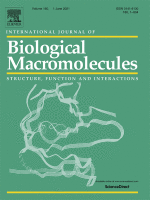
Extraction, structural-activity relationships, bioactivities, and application prospects of Pueraria lobata polysaccharides as ingredients for functional products: A review
2023 Jul International Journal of Biological Macromolecules Wang J, Dai G, Shang M, Wang Y, Xia C, Duan B, et al.
It was found that PLPs possess various bioactivities, including antioxidation, antidiabetic, immunomodulatory, hypolipidemic, antibacterial activities, regulation of intestinal flora, etc. The linkage patterns of glycosidic bonds might influence the bioactivities of PLPs. Meanwhile, PLPs have great development prospects in the health food and medical industries due to their non-toxicity. These discoveries establish a solid foundation for expanding the application and investigations of PLPs.
Review Article Ge Gen
A systematic review on botany, ethnopharmacology, quality control, phytochemistry, pharmacology and toxicity of Arctium lappa L. fruit
2023 May Journal of Ethnopharmacology Jin X, Liu S, Chen S, Wang L, Cui Y, He J, et al.
Arctii Fructus is regarded as a worthy herb with many chemical components and various pharmacological effects. Several traditional applications have been supported by modern pharmacological research. However, their action mechanisms need to be further studied. Although many chemical components were isolated from Arctii Fructus, the current research mainly focused on lignans, especially arctiin and arctigenin. Therefore, it is very important to deeply clarify the pharmacological activities and action mechanism of the compounds and make full medicinal use of the resources of Arctii Fructus.
Review Article Niu Bang Zi
Ophiopogon japonicus and its active compounds: A review of potential anticancer effects and underlying mechanisms
2023 May Phytomedicine Liu Q, Lu JJ, Hong HJ, Yang Q, Wang Y, Chen XJ
The traditional herb O. japonicus and its phytochemicals could be safe and reliable anticancer drug candidates, alone or in combination with chemotherapeutic drugs. We hope that this review, which highlights the anticancer properties of O. japonicus, will contribute to drug optimization, therapeutic development, and future studies on cancer therapies based on this medicinal plant.
Review Article AnticancerResearch insights are moderated by the Research Hub team and offer an at-a-glance overview of interesting research findings.
2023 Journal of Applied Toxicology
Virgin coconut oil shows potential therapeutic promise against Alzheimer's disease by reducing key markers and enhancing neurotransmitter parameters.
Experimental Study Alzheimer's Disease
Evaluation of possible neuroprotective effects of virgin coconut oil on aluminum‐induced neurotoxicity in an in vitro Alzheimer's disease model
Demirel G, Sanajou S, Yirün A, Çakir DA, Berkkan A, Baydar T, et al.

2023 Frontiers in Nutrition
Kiwifruit polysaccharides may alleviate the toxic effects of acrylamide by improving gut health and enhancing bile acid metabolism.
Animal Study Bile Acid Gut Microbiota Kiwifruit
Effects of kiwi fruit (Actinidia chinensis) polysaccharides on metabolites and gut microbiota of acrylamide-induced mice
Chen M, Chen X, Wang K, Cai L, Liu N, Zhou D, et al.
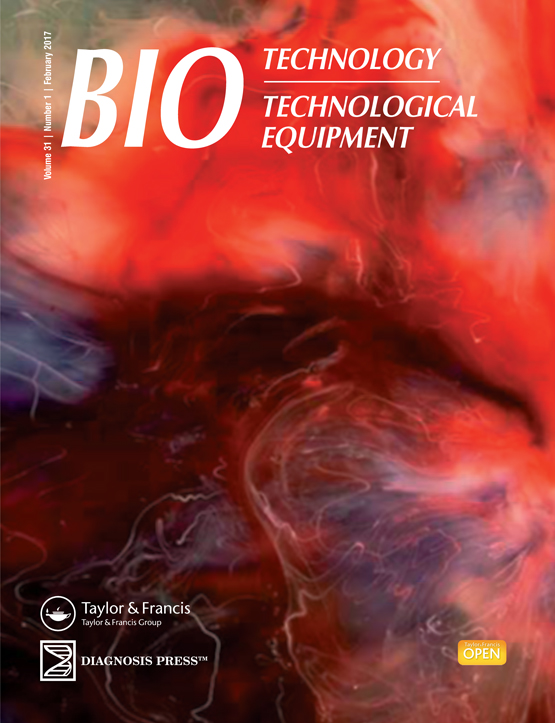
2023 Biotechnology & Biotechnological Equipment
Specific fractions of Lycium barbarum, commonly known as Goji berry, reduce heart and kidney damage caused by anthracyclines while possibly enhancing their therapeutic effects.
Animal Study Cardioprotective Cardioprotective Effects Goji Berry Nephroprotective Effects
Cardio- and nephroprotective effects of fractions isolated from Lycium barbarum (goji berry) in models of cardio- and nephrotoxicity in rats
Hvarchanova N, Stoeva S, Radeva-Ilieva M, Zhelev I, Georgieva M, Dzhenkov D, et al.

2023 Nutrients
Epigallocatechin gallate (EGCG), a green tea component, showed potential in treating uterine fibroids and associated infertility without causing liver toxicity or folate deficiency.
Cohort Study EGCG Green Tea Uterine Fibroids
Assessing the Hepatic Safety of Epigallocatechin Gallate (EGCG) in Reproductive-Aged Women
Siblini H, Al-Hendy A, Segars J, González F, Taylor HS, Singh B, et al.
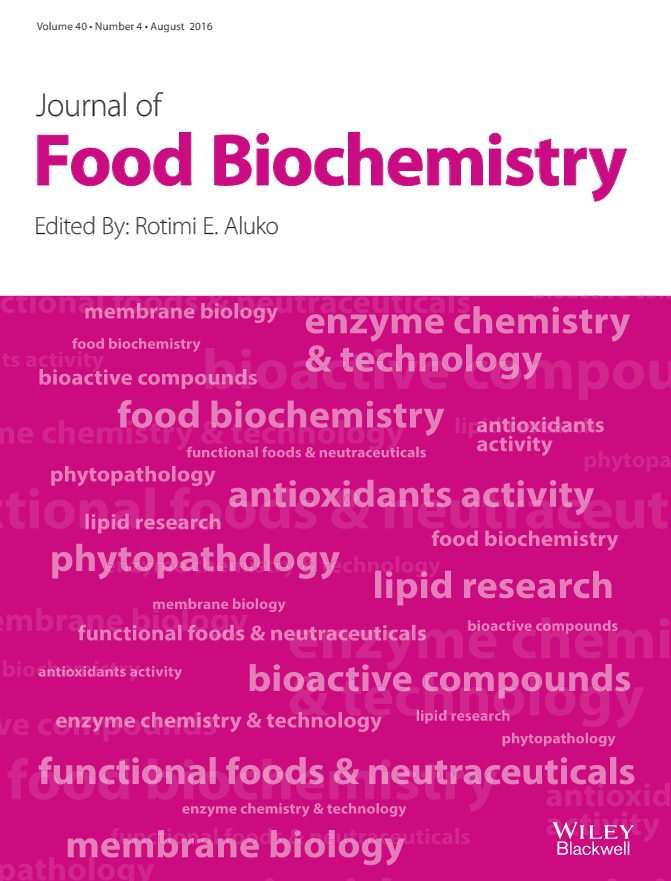
2022 Journal of Food Biochemistry
Persea americana seed extract can counteract the negative effects of cyclosporine on male rat reproduction, enhancing antioxidant enzyme activity, sperm quality, and hormonal balance.
Animal Study Avocado Seed Sperm Quality
Persea americana
seed extract restores defective sperm quality and biochemical parameters relevant to reproduction in male wistar rats treated with cyclosporine A
Adebayo AA, Babatola LJ, Fasanya CB, Oboh G
Review Articles
Review articles summarise and critically evaluate the current state of research on a specific topic or field by synthesising multiple primary research studies.

Extraction, structural-activity relationships, bioactivities, and application prospects of Pueraria lobata polysaccharides as ingredients for functional products: A review
2023 Jul International Journal of Biological Macromolecules Wang J, Dai G, Shang M, Wang Y, Xia C, Duan B, et al.
It was found that PLPs possess various bioactivities, including antioxidation, antidiabetic, immunomodulatory, hypolipidemic, antibacterial activities, regulation of intestinal flora, etc. The linkage patterns of glycosidic bonds might influence the bioactivities of PLPs. Meanwhile, PLPs have great development prospects in the health food and medical industries due to their non-toxicity. These discoveries establish a solid foundation for expanding the application and investigations of PLPs.
Review Article Ge Gen
A systematic review on botany, ethnopharmacology, quality control, phytochemistry, pharmacology and toxicity of Arctium lappa L. fruit
2023 May Journal of Ethnopharmacology Jin X, Liu S, Chen S, Wang L, Cui Y, He J, et al.
Arctii Fructus is regarded as a worthy herb with many chemical components and various pharmacological effects. Several traditional applications have been supported by modern pharmacological research. However, their action mechanisms need to be further studied. Although many chemical components were isolated from Arctii Fructus, the current research mainly focused on lignans, especially arctiin and arctigenin. Therefore, it is very important to deeply clarify the pharmacological activities and action mechanism of the compounds and make full medicinal use of the resources of Arctii Fructus.
Review Article Niu Bang Zi
Ophiopogon japonicus and its active compounds: A review of potential anticancer effects and underlying mechanisms
2023 May Phytomedicine Liu Q, Lu JJ, Hong HJ, Yang Q, Wang Y, Chen XJ
The traditional herb O. japonicus and its phytochemicals could be safe and reliable anticancer drug candidates, alone or in combination with chemotherapeutic drugs. We hope that this review, which highlights the anticancer properties of O. japonicus, will contribute to drug optimization, therapeutic development, and future studies on cancer therapies based on this medicinal plant.
Review Article Anticancer
Protective effects of Korean Red Ginseng against toxicity of endocrine-disrupting chemicals
2023 Mar Journal of Ginseng Research Jung EM, Lee SH, Lee GS
Korean Red Ginseng (KRG) exhibits protective effects against various toxicities caused by EDCs, providing a potential avenue for mitigating the adverse effects on human health.
Review Article Endocrine Disrupting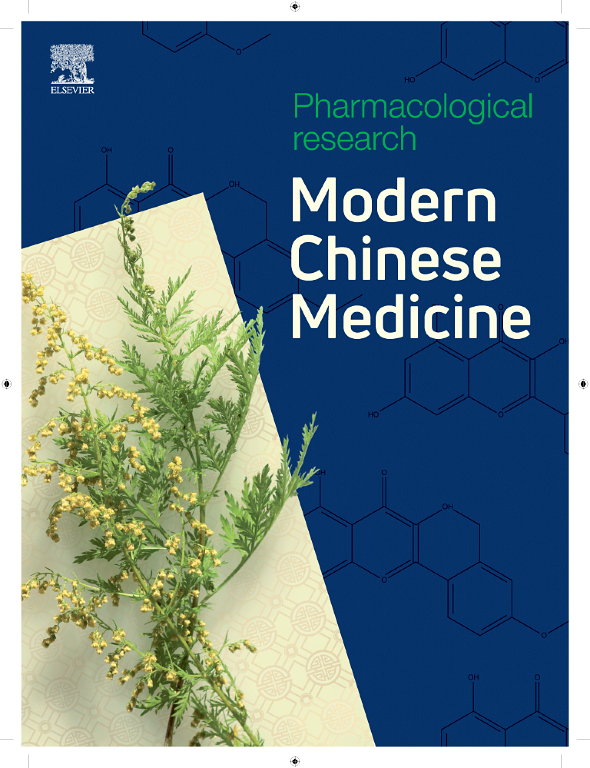
Potential therapeutic applications of eudesmin in medicine: An overview on medicinal importance, pharmacological activities and analytical prospects
2022 Dec Pharmacological Research - Modern Chinese Medicine Patel DK, Patel K
Present work revealed the pharmacological activities and analytical aspects of eudesmin. Presented scientific information revealed to the anti-inflammatory, anti-microbial, anti-tumor, cytotoxicity, anti-convulsant, sedative effect, insecticidal and α-glucosidase inhibitory activity of eudesmin. However eudesmin has therapeutic potential against allergic diseases, adipogenic differentiation, diabetic nephropathy, gastrointestinal motility, lung cancer, microbial transformation, neurite outgrowth, and vascular relaxation.
Review Article EudesminClinical Trials
Clinical trials are research studies that involve people and are conducted to evaluate the safety and efficacy of new treatments or interventions, such as drugs, medical devices, or behavioural therapies.
Study Protocols
Published study protocols are detailed plans that outline the objectives, methodology, statistical analyses, and organisation of a research study that have been made publicly available for others to review and use as a reference.
Presentation Slides

Experimental Study
Virgin coconut oil shows potential therapeutic promise against Alzheimer's disease by reducing key markers and enhancing neurotransmitter parameters.
Demirel G, Sanajou S, Yirün A, Çakir DA, Berkkan A, Baydar T, Erkekoğlu P

Animal Study
Kiwifruit polysaccharides may alleviate the toxic effects of acrylamide by improving gut health and enhancing bile acid metabolism.
Chen M, Chen X, Wang K, Cai L, Liu N, Zhou D, Jia W, Gong P, Liu N, Sun Y

Animal Study
Specific fractions of Lycium barbarum, commonly known as Goji berry, reduce heart and kidney damage caused by anthracyclines while possibly enhancing their therapeutic effects.
Hvarchanova N, Stoeva S, Radeva-Ilieva M, Zhelev I, Georgieva M, Dzhenkov D, Georgiev KD

Cohort Study
Epigallocatechin gallate (EGCG), a green tea component, showed potential in treating uterine fibroids and associated infertility without causing liver toxicity or folate deficiency.
Siblini H, Al-Hendy A, Segars J, González F, Taylor HS, Singh B, Flaminia A, Flores VA, Christman GM, Huang H, Johnson JJ, Zhang H

Animal Study
Persea americana seed extract can counteract the negative effects of cyclosporine on male rat reproduction, enhancing antioxidant enzyme activity, sperm quality, and hormonal balance.
Adebayo AA, Babatola LJ, Fasanya CB, Oboh G

Review Article
Ellagic acid, commonly found in various plant foods, can enhance cancer treatment by boosting the effects of chemotherapy and radiotherapy while reducing their side effects.
Xue P, Zhang G, Zhang J, Ren L

Clinical Study
Pomegranate polyphenols have shown strong potential in preventing and treating breast cancer through various anti-cancer effects.
Moga MA, Dimienescu OG, Bălan A, Dima L, Toma SI, Bîgiu NF, Blidaru A
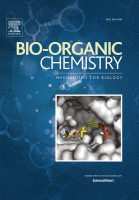
Experimental Study
Green tea polyphenolic compounds, (-)-epigallocatechin (EGC) and (-)-epicatechin-3-gallate (ECG), can diminish harmful Alzheimer's disease linked Aβ aggregates and ameliorate symptoms.
Chen T, Yang Y, Zhu S, Lu Y, Zhu L, Wang Y, Wang X
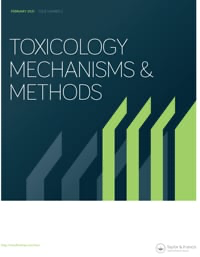
Mandarin peel oil induced preferential inhibition of human prostate cancer cell proliferation in a concentration-dependent manner.
Hussien NA, Mohamed HRH.

Review Article
Juhua, the flower head of Chrysanthemum morifolium Ramat, possesses multiple medicinal properties and has a significant role in dietary herbal medicine in China.
Yuan H, Jiang S, Liu Y, Daniyal M, Jian Y, Peng C, Shen J, Liu S, Wang W
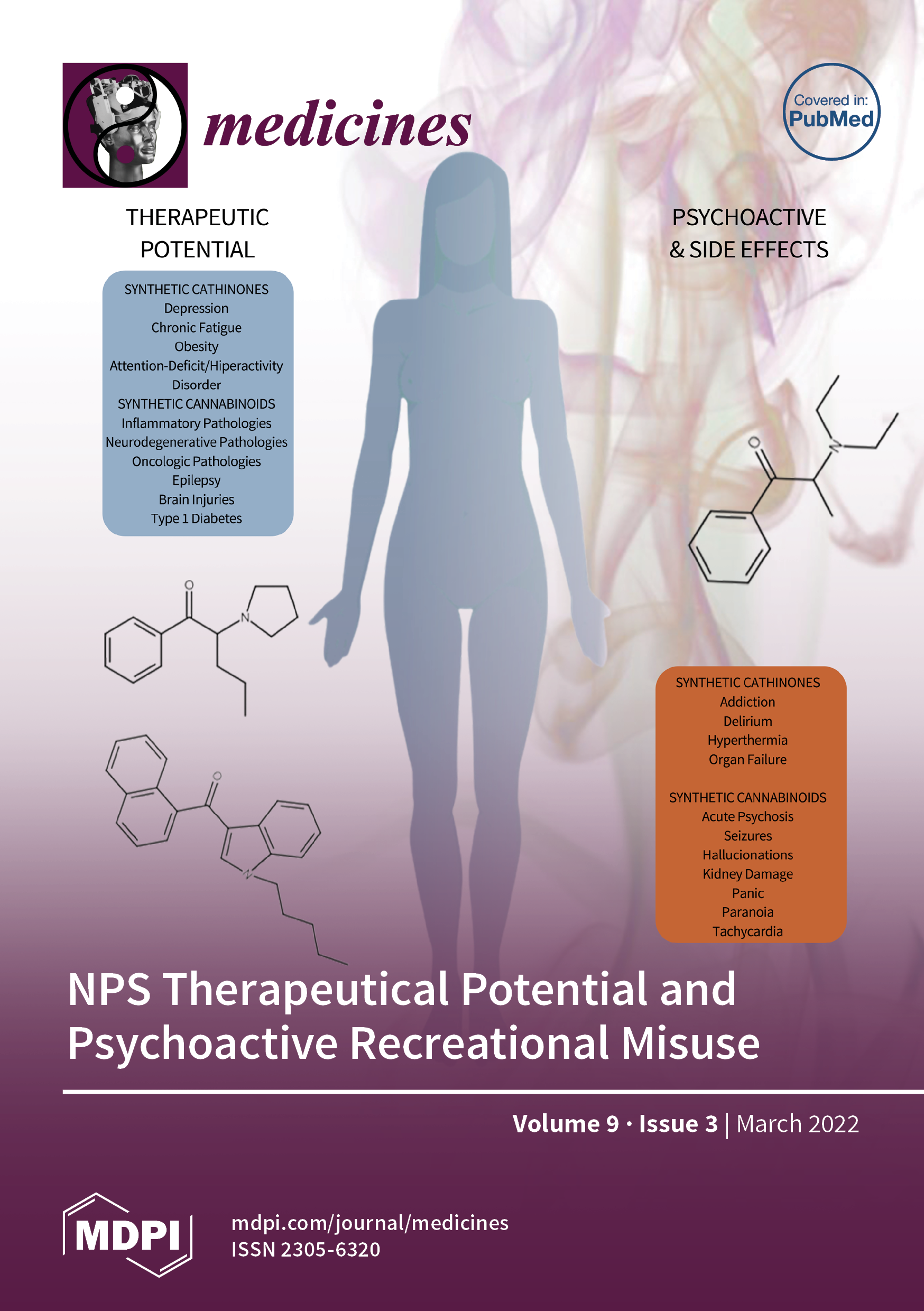
Experimental Study
Pomegranate juice increases the effectiveness of lung cancer treatment with the low dose chemotherapy drug Cisplatin, while simultaneously reducing its toxicity on normal cells.
Nasser M, Damaj Z, Hijazi A, Merah O, Al-Khatib B, Hijazi N, Trabolsi C, Damaj R, Nasser M

Review Article
Traditional Chinese medicine impacts on the prevention and treatment of influenza with potential value in shorting fever durations and alleviating influenza symptoms among children and pregnant women.
Xiong Y, Li NX, Duan N, Liu B, Zhu H, Zhang C, Li L, Lu C, Huang L
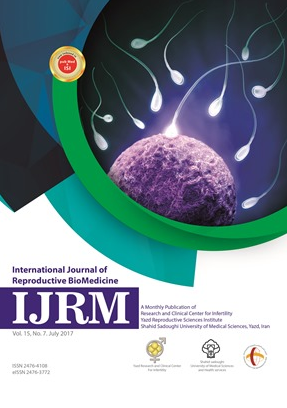
Experimental Study
Date palm fruit extract may mitigate some harmful effects of formaldehyde on male fertility by improving testosterone, sperm, and testicular conditions.
Zaren M, Haghpanah T, Asadi Shekari M, Hassan Eftekhar-Vaghefi S

Review Article
Omega 3 fatty acids can counter muscle lipotoxicity and prevent comorbidities in patients with rheumatoid arthritis, supporting muscle health and reducing cardiometabolic disease risk.
Lanchais K, Capel F, Tournadre A
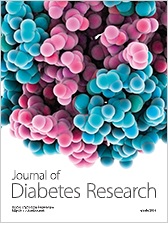
Review Article
Traditional Chinese medicine, especially Zuo Gui Wan, red raspberry leaves, and Orthosiphon stamineus, seems to control gestational diabetes effectively without reported toxicity.
Xu YXZ, Xi S, Qian X

Mung bean sprout extract has potent antiviral and to a lesser extent, prophylactic activities against both RSV and HSV-1, and in case of HSV-1, these activities were comparable to Acyclovir.
Hafidh, R.R., Abdulamir, A.S., Abu Bakar, F. et al.

Experimental Study
Tremella fuciformis, a mushroom, shows potential as a protective agent against neurodegenerative diseases like Alzheimer's by promoting cell growth and reducing toxicity.
Park KJ, Lee SY, Kim HS, Yamazaki M, Chiba K, Ha HC
Executive Summary
Write an executive summary in the form of a blog article on the topic of "Research into Chinese medicine treatment for Toxicity" summarising the research below and using language that can be easily understood by patients and avoiding medical jargon using a professional and caring tone of voice.
Write an executive summary in the form of a blog article on the topic of "Researched Chinese medicine treatments for Toxicity" summarising the research below in an objective and easy to understand way, and using language that can be easily understood by patients. Group the article into Chinese medicine treatments first, followed by nutrition and other treatments. Avoid using medical jargon and use a professional and caring tone of voice.
Write me a concise but easy to understand executive summary on the topic of "Chinese medicine treatments for Toxicity" based on the following research that I will give you. Your summary should be 2 paragraphs long in Australian English spelling and include references to the studies.
A Experimental Study published in 2023 in the journal Journal of Applied Toxicology found that Virgin coconut oil shows potential therapeutic promise against Alzheimer's disease by reducing key markers and enhancing neurotransmitter parameters. In this study, the SH-SY5Y cell lines were cultured in its regular growth medium which was then differentiated by reducing its fetal bovine serum content and adding retinoic acid. Further, brain-derived neurotrophic factor was added in unison with retinoic acid, completing the differentiation process by the seventh day. The study groups comprised of a control group, groups that received virgin coconut oil, Aluminum, both or neither, an Alzheimer model group, and a group replicating the Alzheimer model exposed to Aluminum and virgin coconut oil. The measurable aspects in this study included specific indicators of Alzheimer's disease like hyperphosphorylated Tau protein, amyloid beta 1-40 peptide, and amyloid precursor protein, oxidative stress parameters, and neurotransmitter-related parameters. In the results, it was revealed that virgin coconut oil was successful in reducing levels of amyloid beta and hyperphosphorylated Tau protein in the groups. This composition also seemed to decrease oxidative stress levels associated with Alzheimer's disease, delivering improvement in neurotransmitter parameters, which supports the hypothesis that virgin coconut oil can be therapeutic against this progressive neurological disorder.
A Animal Study published in 2023 in the journal Frontiers in Nutrition found that Kiwifruit polysaccharides may alleviate the toxic effects of acrylamide by improving gut health and enhancing bile acid metabolism. In this study, the team explored the potential protective effects of kiwifruit polysaccharides on disorders induced by acrylamide (a toxic ingredient found in high-temperature, carbohydrate-rich food) on gut microbiota and systemic metabolism. They measured changes in gut microbiota and serum metabolites in mice subjected to acrylamide-induced toxicity, focusing primarily on the effects on mice's bodily features, liver health, and liver enzyme activity. The results revealed that treatment with kiwifruit polysaccharides not only improved the mice's overall health and liver function but also restored the balance in their gut microbiota by increasing microbial diversity and the abundance of beneficial bacteria. Furthermore, it was found that the polysaccharides had a significant impact on amino and bile acid-related metabolic pathways, proving their potential in protecting against toxicity. A strong correlation was also found between certain bacteria and the critical metabolites of bile acid metabolism, providing a deeper understanding of the protective mechanisms of kiwifruit polysaccharides.
A Animal Study published in 2023 in the journal Biotechnology & Biotechnological Equipment found that Specific fractions of Lycium barbarum, commonly known as Goji berry, reduce heart and kidney damage caused by anthracyclines while possibly enhancing their therapeutic effects. The study investigated the effects of three different fractions of Goji berries (pectin-free, polysaccharides, and a mix of the two) on rat models suffering from doxorubicin-induced damage to the heart and kidneys. The fractions were orally administered at a dose of 2mg/kg while doxorubicin was applied at a total dose of 20mg/kg. Several biomarkers were used to assess heart damage (such as creatine kinase, aspartate aminotransferase, lactate dehydrogenase) and kidney damage (creatinine, blood urea nitrogen, uric acid), along with potassium serum levels. Additionally, a histological analysis of the hearts and kidneys was conducted. In terms of results, rats treated solely with doxorubicin exhibited a significant increase in all toxicity biomarkers. However, in all groups that also received any of the plant fractions, there was substantial reduction in markers indicating heart and kidney tissue damage. Notably, the pectin-free and combined fractions presented the most substantial decreases in toxicity indicators. These findings were further corroborated by the histological analysis.
A Cohort Study published in 2023 in the journal Nutrients found that Epigallocatechin gallate (EGCG), a green tea component, showed potential in treating uterine fibroids and associated infertility without causing liver toxicity or folate deficiency. The study involved the pre-testing of a green tea substance known as Epigallocatechin gallate (EGCG) on a cohort of premenopausal women, aged 18 to 40, with and without uterine fibroids, in order to evaluate its safety. The subjects were randomized into three groups, each receiving different treatments. One group took just a daily dose of 800 mg of EGCG, one group combined this EGCG dose with 100 mg of Clomiphene citrate for five days, and the third group combined it with 5 mg of Letrozole for the same period. The results showed that none of the subjects displayed signs of drug-induced liver injury, and all had normal serum folate levels. Hence, the findings suggest that the daily intake of 800mg of EGCG, whether consumed alone or in combination with Clomiphene citrate or Letrozole for five days, is well-tolerated and not related to any liver toxicity or folate deficiency in women of reproductive age.
A Animal Study published in 2022 in the journal Journal of Food Biochemistry found that Persea americana seed extract can counteract the negative effects of cyclosporine on male rat reproduction, enhancing antioxidant enzyme activity, sperm quality, and hormonal balance. Thirty male albino rats were used in this experiment and, apart from the control group, all were induced with cyclosporine. They were then divided into five groups: one remained untreated, the second was given lisinopril, and the remaining two received varying doses of Persea americana seed extract (PAE). The antioxidant enzymes, superoxide dismutase and catalase, along with arginase activities, nitric oxide, and malondialdehyde levels of the penile tissue, were evaluated. Additionally, serum hormonal concentration (including follicle stimulating hormone, luteinizing hormone, and testosterone) and sperm quality were examined. In cyclosporine-induced rats, there was a notable decline in antioxidant enzymes, sperm quality, nitric oxide, and hormonal levels. More so, arginase activity and malondialdehyde levels increased. However, once groups were treated with PAE or lisinopril, a significant improvement was observed across these parameters, including a decrease in malondialdehyde levels and arginase activity. This demonstrates that the persea americana seed extract possesses therapeutic potential for managing hormonal disruptions caused by oxidative stress.
A Review Article published in 2022 in the journal Phytomedicine found that Ellagic acid, commonly found in various plant foods, can enhance cancer treatment by boosting the effects of chemotherapy and radiotherapy while reducing their side effects. The presented review compiled in vitro and in vivo experimental evidence of the synergistic effect of Ellagic acid (EA) in cancer therapy from multiple databases including PubMed, Web of Science, and Google Scholar. The focus was on the use of EA in conjunction with conservative treatment methods such as chemotherapy and radiotherapy. The results suggest that EA, a polyphenolic compound found in various plant foods, has the potential to enhance the effectiveness of these treatment methods. It was found to improve treatment outcomes when combined with a low dosage of therapeutic drugs or optimized radiation levels. Additionally, EA appears to have a preventative effect against the adverse reactions normally associated with chemotherapy, possibly due to its antioxidant and anti-inflammatory properties. This makes it a promising candidate as a drug adjuvant in cancer treatment.
A Clinical Study published in 2021 in the journal Molecules found that Pomegranate polyphenols have shown strong potential in preventing and treating breast cancer through various anti-cancer effects. The researchers conducted a systematic review of scientific literature available on PubMed and Google Scholar, that included articles written in English over the past two decades. They focused on the original research articles examining the potential role of pomegranate and its polyphenols in breast cancer prevention and treatment. In total, they selected 28 papers for review, including both clinical and preclinical studies. The research revealed that pomegranate polyphenols display potent anti-cancer properties through several mechanisms on breast cancer cells. These mechanisms include anti-estrogenic, anti-proliferative, anti-angiogenic, anti-inflammatory, and anti-metastatic effects. Additionally, pomegranate extracts could induce cell cycle arrest, cytotoxicity, and inhibit invasion in breast cancer cells. However, findings from two small clinical trials were contradicting. Overall, pomegranate was recognised as a promising natural strategy for managing breast cancer.
A Experimental Study published in 2020 in the journal Bioorganic Chemistry found that Green tea polyphenolic compounds, (-)-epigallocatechin (EGC) and (-)-epicatechin-3-gallate (ECG), can diminish harmful Alzheimer's disease linked Aβ aggregates and ameliorate symptoms. Green tea compounds EGC and ECG were tested for their effects on Cu/Zn-induced or self-assembled Aβ aggregation involved in Alzheimer's disease. To do so, a combination of thioflavine T fluorescent spectrometry, inductively coupled plasma mass spectrometry, UV-Vis spectroscopy, transmission electron microscopy, silver staining, immunohistochemistry, and immunofluorescence assays were utilized. Findings indicate that these compounds bind mildly to Cu and Zn and reduce their caused or self-assembled Aβ aggregates. Moreover, these compounds were shown to manage neurotoxicity in mouse neuroblastoma Neuro-2a cells by decreasing the production of reactive oxygen species (ROS). From the findings, the EGC and ECG in green tea showed potential in reducing the toxicity of Aβ oligomers and fibrils which are heavily linked to Alzheimer's disease. Notably, ECG has the ability to traverse the blood-brain barrier and reduce Aβ plaques within the mouse brain, showcasing its potential for neuron protection. This study highlights the potential of green tea - specifically, its polyphenolic compounds - in the prevention or reduction of Alzheimer's disease symptoms.
A published in 2020 in the journal Toxicology Mechanisms and Methods found that Mandarin peel oil induced preferential inhibition of human prostate cancer cell proliferation in a concentration-dependent manner. The time-dependent induction of DNA breaks demonstrated in PC3 cells treated with MPO safe concentration-stimulated ROS generation and apoptotic DNA damage through increased expression of tumor suppressor p53 and Bax genes and decreased expression of Bcl2 and MDM2 genes. In contrast, non-significant changes were observed in the DNA integrity, ROS levels and expressions of the tested genes in the normal HFB4 cells treated with MPO. Thus, we concluded that MPO induced preferential cytotoxic and genotoxic effects toward cancerous PC3 with no noticeable toxic effects in normal HFB4 cells and therefore further in vivo studies are recommended to test its possible use as anticancer drugs.
A Review Article published in 2020 in the journal Journal of Ethnopharmacology found that Juhua, the flower head of Chrysanthemum morifolium Ramat, possesses multiple medicinal properties and has a significant role in dietary herbal medicine in China. The study gathers information about Chinese dietary herbal medicine and flower-derived medicine, focusing on Juhua, from varied sources such as government reports, classic books of Traditional Chinese medicine, doctoral and master's theses, and various databases. The methodology includes summarizing all flower-originated crude medicines listed in Chinese pharmacopeia and their applications for the first time, retracing the edible history and development of flowers in China, discussing the theory of Chinese dietary herbal medicines, and examining flowers as dietary herbal medicines. Discussion of the results highlights applications in Traditional Chinese medicine and diet, cultivars, phytochemistry, quality control, and pharmacology of Juhua. A safety evaluation of Juhua, along with an overview of chrysanthemum breeding and biotechnology, are included in the findings. The study determines that many herbal flowers, particularly Juhua, have considerably contributed to the prevention and treatment of various diseases in China.
A Experimental Study published in 2020 in the journal Medicines found that Pomegranate juice increases the effectiveness of lung cancer treatment with the low dose chemotherapy drug Cisplatin, while simultaneously reducing its toxicity on normal cells. The study performed classical tests for initial phytochemical screening of the pomegranate extract, measuring both total phenolic and sugar contents. The antioxidant activity of the pomegranate juice was then evaluated using an accepted method for determining its ability to eliminate harmful oxidative molecules. The viability of lung cancer cells and normal blood cells, when treated with pomegranate and the Cisplatin, was gauged using a neutral red assay, a test that determines cell health by noting their capacity to incorporate neutral red dye. In the discussion of results, the findings highlighted the high density of antioxidant compounds (such as flavonoids, alkaloids, etc) in the pomegranate juice. The juice had strong oxidative molecule scavenging activity, indicating potential as an antioxidant treatment. Most notably, the combination of pomegranate juice with a low dose of Cisplatin significantly reduced the viability of lung cancer cells while enhancing that of normal blood cells when compared to treatment with just Cisplatin or pomegranate juice.
A Review Article published in 2020 in the journal Frontiers in Pharmacology found that Traditional Chinese medicine impacts on the prevention and treatment of influenza with potential value in shorting fever durations and alleviating influenza symptoms among children and pregnant women. Influenza infection is a highly contagious, acute febrile respiratory disease caused by the influenza virus. Traditional Chinese Medicine (TCM) has dominated plenty of theoretical and practical approaches in the treatment of influenza. It is, therefore, important to highlight the effects of TCM in the clinical treatment of influenza and their impact on inhibiting the growth of this virus in laboratory experiments. We scrutinized existing evidence on whether TCM is effective in clinical applications. Moreover, we described the potential mechanisms of TCM against the influenza virus. Our findings provide analytical evidence that supports the effectiveness of TCM in treating influenza infections as well as their mechanisms against this virus.
A Experimental Study published in 2020 in the journal International Journal of Reproductive BioMedicine (IJRM) found that Date palm fruit extract may mitigate some harmful effects of formaldehyde on male fertility by improving testosterone, sperm, and testicular conditions. The study divided thirty-two male mice of similar ages and weight ranges into four groups. The control group was given distilled water orally for 35 days. The Formaldehyde group received a Formaldehyde dose for 20 days. The third group took a Date fruit extract dose for 35 days followed by a Formaldehyde dose for 20 days while the last group was administered Date fruit extract for 35 days. Following these treatments, blood was collected and epididymis and testis tissues analyzed to evaluate sperm characteristics and conduct a histological examination respectively. Results showed that formaldehyde administration increased sperm deformities, decreased sperm count, livability, and motility, and reduced testosterone levels in comparison to the control group. Histological assessments showed that formaldehyde induced changes in the testes, including damage to the germinal epithelium and vacuolization of the tubules. However, the consumption of Date palm fruit extract was found to ameliorate the effects noticed due to formaldehyde on testosterone levels, sperm, and testicular parameters.
A Review Article published in 2020 in the journal Nutrients found that Omega 3 fatty acids can counter muscle lipotoxicity and prevent comorbidities in patients with rheumatoid arthritis, supporting muscle health and reducing cardiometabolic disease risk. The research explores the connection between Rheumatoid arthritis, a chronic inflammatory disease, and a set of comorbidities such as cardiovascular disorders, insulin resistance, metabolic syndrome, and sarcopenia, hypothesizing that these could possibly be associated with alterations in lipid metabolism. Patients with rheumatoid arthritis are observed to have lower cholesterol levels paradoxically coupled with an increased risk of cardiovascular disorders. The study also discusses the accumulation of toxic lipid mediators in skeletal muscles which can lead to mitochondrial dysfunctions and insulin resistance, both key factors of cardiovascular disorders and sarcopenia. Through multiple research studies, it was observed that Omega 3 fatty acids could potentially inhibit the development of rheumatoid arthritis and improve muscle metabolism, consequently reducing muscle atrophy in patients with obesity and insulin resistance. Thus, dietary supplementation with Omega 3 fatty acids was suggested as a promising strategy to limit the lipotoxicity in muscles and prevent associated health risks in patients dealing with rheumatoid arthritis.
A Review Article published in 2019 in the journal Journal of Diabetes Research found that Traditional Chinese medicine, especially Zuo Gui Wan, red raspberry leaves, and Orthosiphon stamineus, seems to control gestational diabetes effectively without reported toxicity. The study initiated a systematic search across PubMed, Web of Science, and Embase databases to pinpoint research discussing the impact of traditional Chinese medicine on pregnancy. The results were then further narrowed down to focus on any correlation with all forms of diabetes mellitus. The primary thread that emerged was the beneficial effect of three main herbal remedies: Zuo Gui Wan, red raspberry leaves, and Orthosiphon stamineus. Based off of the results from this search, a focal review of these herbal elements and their associations with type 2 diabetes mellitus was undertaken. Across the board, these remedies demonstrated positive effects on metabolic health, especially among women dealing with gestational diabetes. No experimental models reported any toxicity or harmful side effects associated with these herbal treatments. The report calls out that current studies on both conventional and alternative interventions for gestational diabetes are immensely lacking, emphasizing the need for a standardized protocol to evaluate the efficacy of these herbal medicines.
A published in 2015 in the journal BMC Complementary Medicine and Therapies found that Mung bean sprout extract has potent antiviral and to a lesser extent, prophylactic activities against both RSV and HSV-1, and in case of HSV-1, these activities were comparable to Acyclovir. MBS extract has potent antiviral and to a lesser extent, prophylactic activities against both RSV and HSV-1, and in case of HSV-1, these activities were comparable to Acyclovir. Part of the underlying mechanism(s) of these activities is attributed to MBS potential to remarkably induce antiviral cytokines in human cells. Hence, we infer that MBS methanol extract could be used as such or as purified active component in protecting and treating RSV and HSV-1 infections. More studies are needed to pinpoint the exact active components responsible for the MBS antiviral activities.
A Experimental Study published in 2007 in the journal Mycobiology found that Tremella fuciformis, a mushroom, shows potential as a protective agent against neurodegenerative diseases like Alzheimer's by promoting cell growth and reducing toxicity. The methodology involved testing the neurotrophic effects of Tremella fuciformis, a mushroom, using a hot water extract of it. This testing was done by utilizing microscopic monitoring of its ability to encourage neurite outgrowth in PC12h cells, essentially examining the mushroom's ability to stimulate nerve growth. The researchers compared the effectiveness of the extract to other natural substances that had previously been studied in promoting nerve growth. In the discussion of results, the study demonstrated that the hot water extract of T. fuciformis was highly effective at promoting neurite outgrowth in PC12h cells. This effectiveness outperformed other natural substances in previous studies. Moreover, when the cells were treated with T. fuciformis extract before being exposed to a β-amyloid peptide treatment (which is associated with Alzheimer's disease), the extract significantly reduced the toxicity. This suggests the potential application of T. fuciformis as a preventative measure in counteracting neurodegenerative diseases such as Alzheimer's.
Moderation Tools
Topic
Sign In
Users not signed in are limited to viewing the 5 most recent items of content.